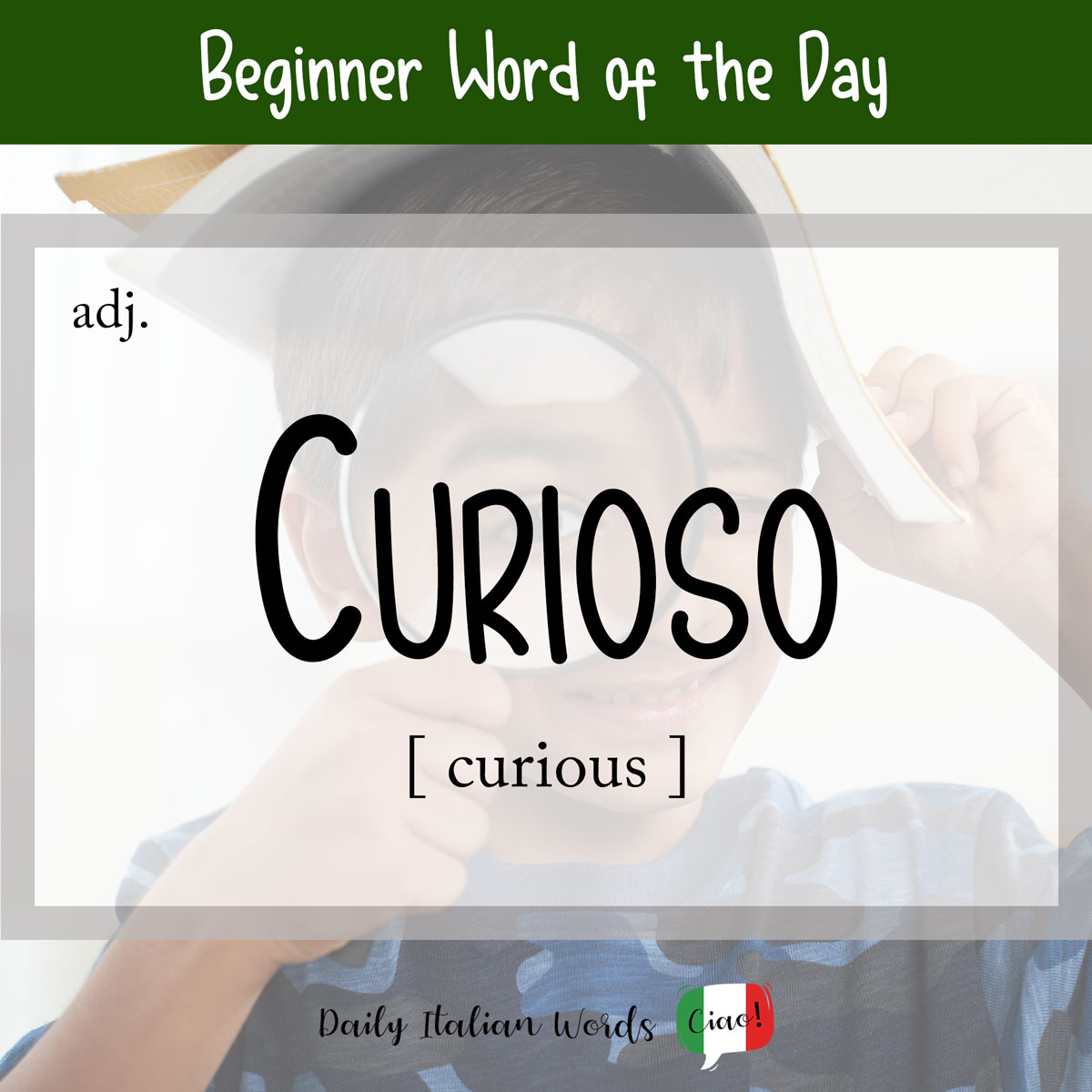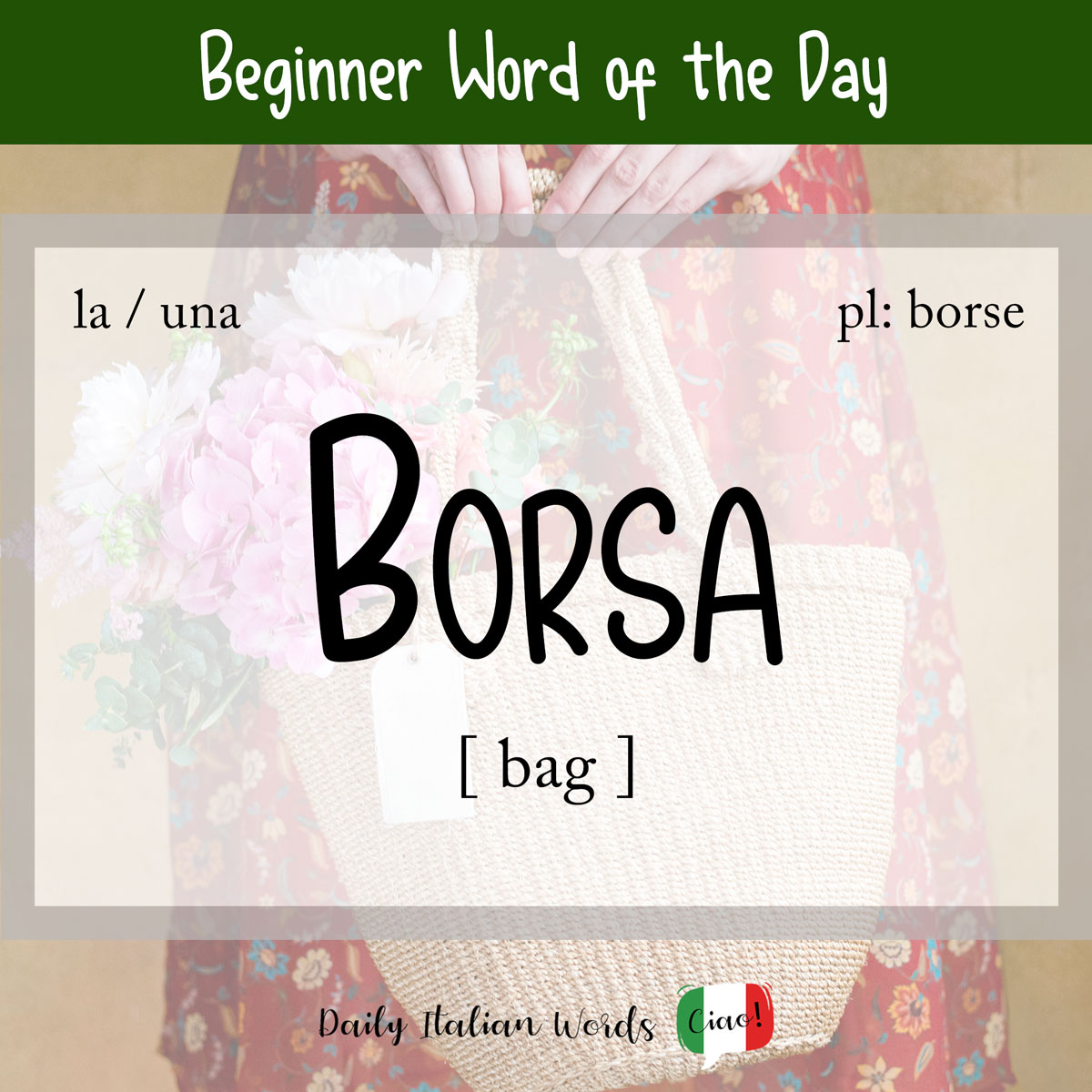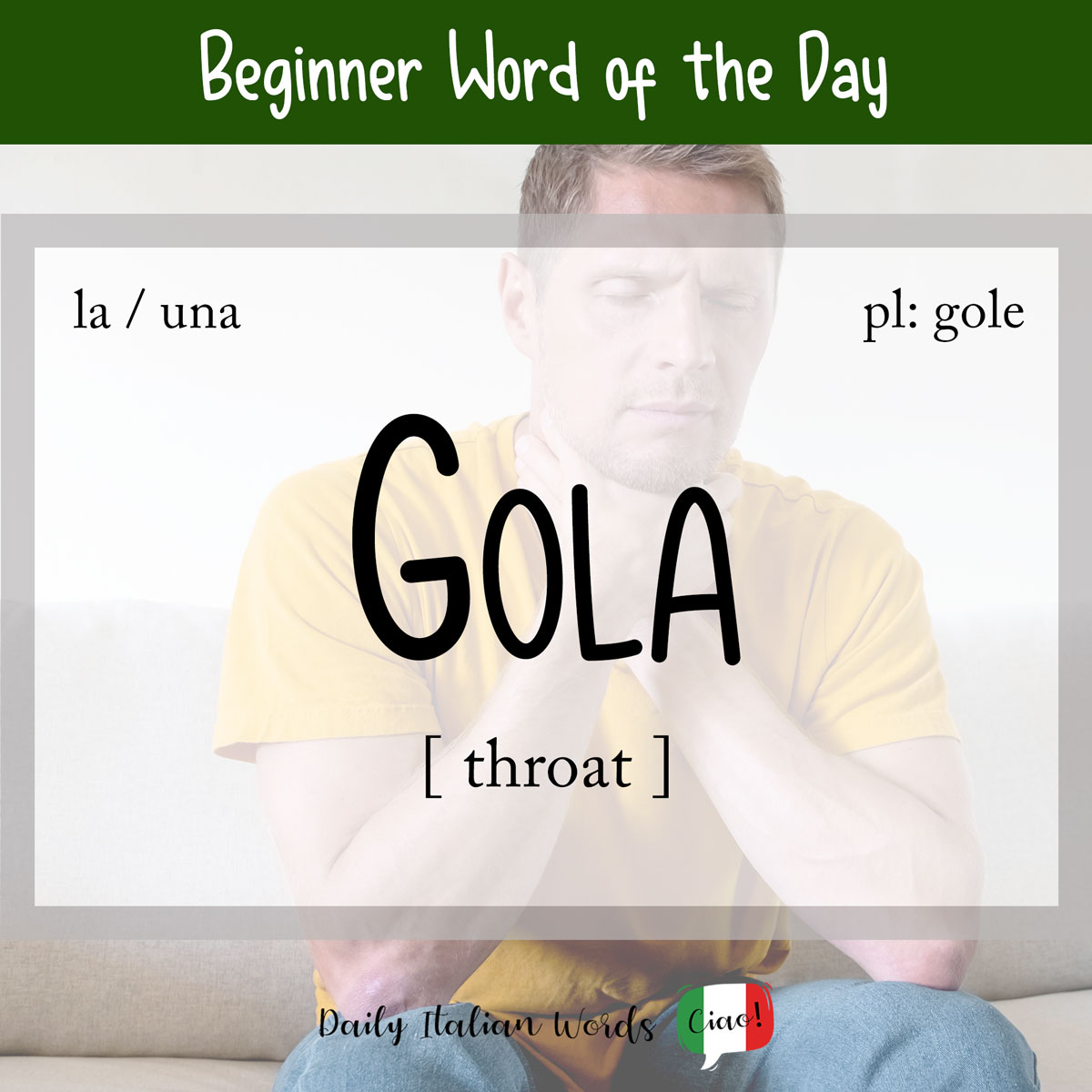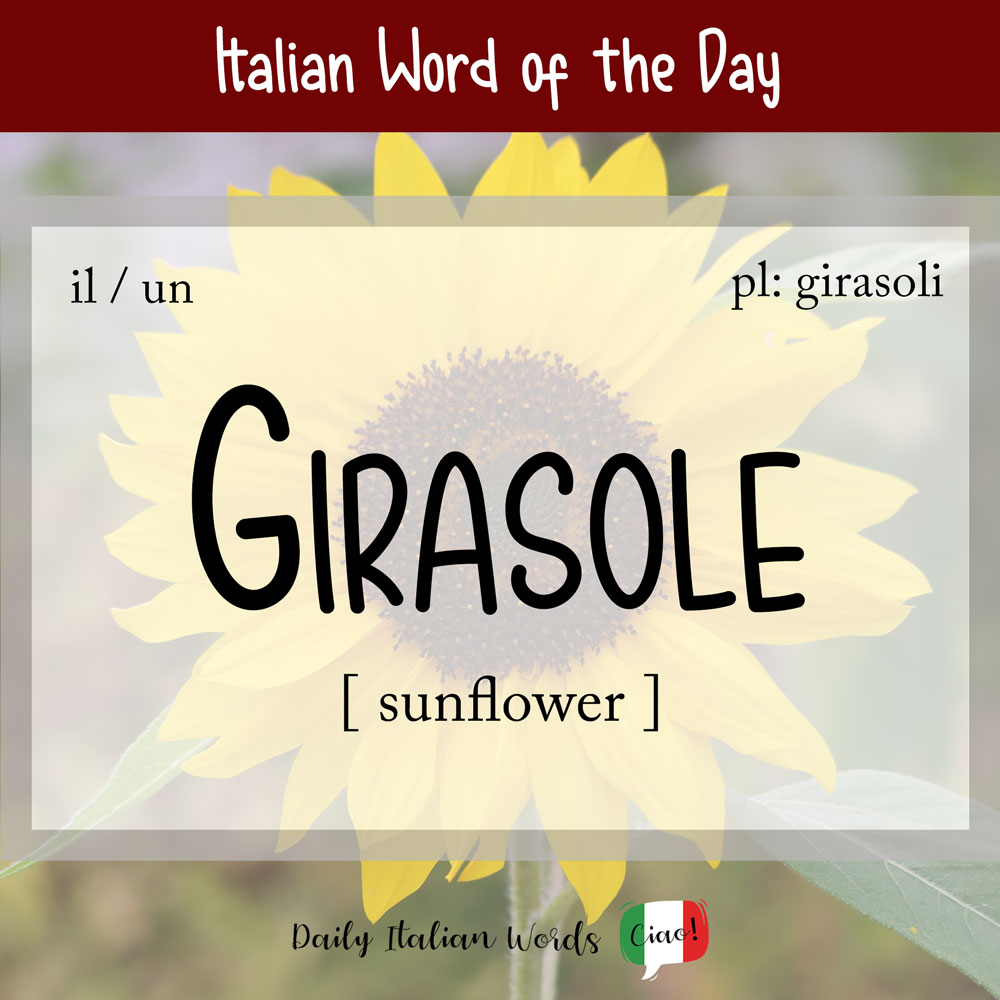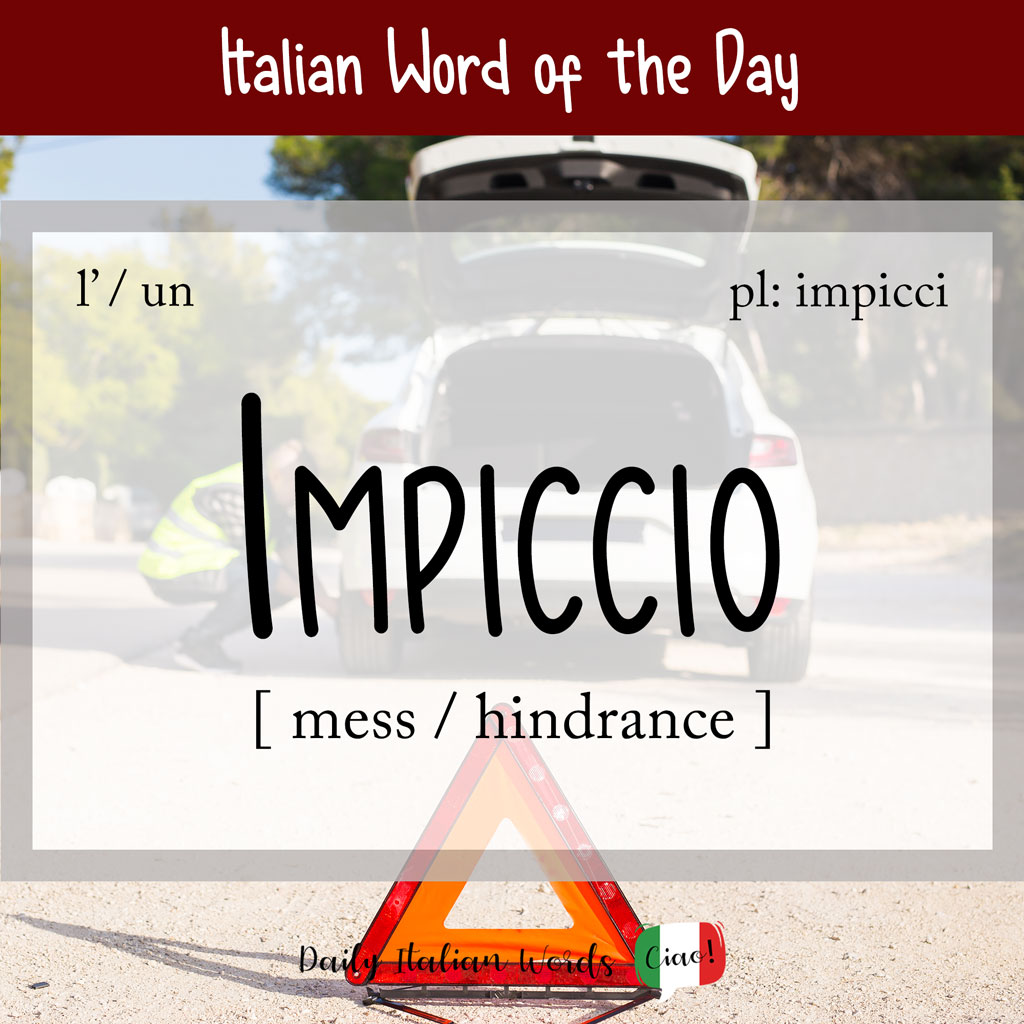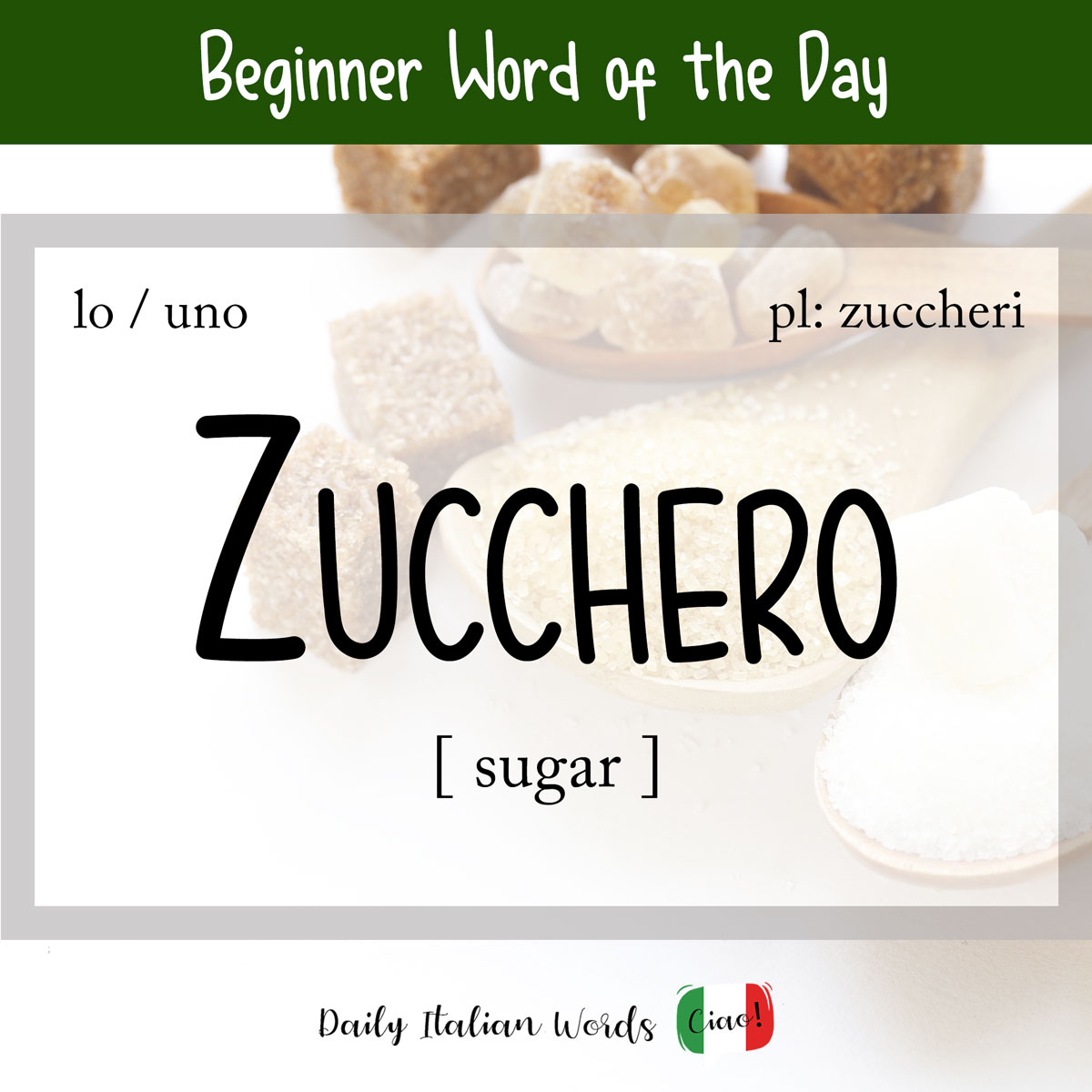Italian Word of the Day: Curioso (curious)
The word for curious in Italian is curioso. It derives from the Latin curiosus meaning careful or diligent. Because it is an adjective, the ending of curioso changes depending on whether you are talking about a solitary male (curioso), a solitary female (curiosa), a group of males or a mixed group (curiosi) or a group …

